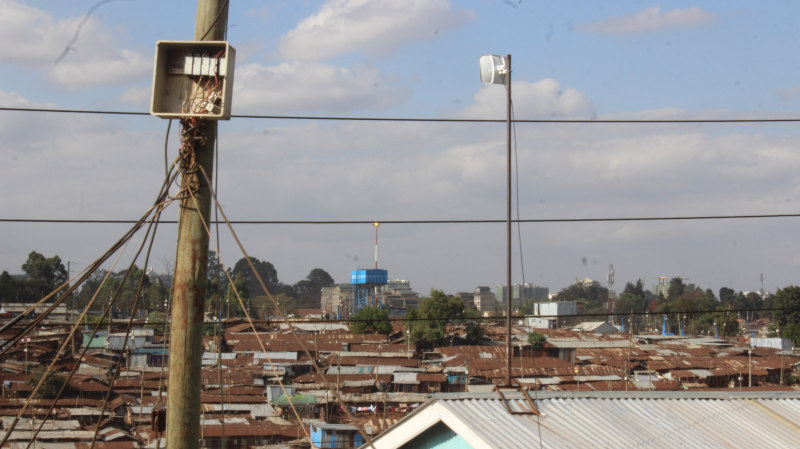By Nzambi Kakusu.
TunapandaNET is a low cost community wireless network developed in 2015 by Tunapanda Institute to help the local youth access educational information. Tunapanda Institute, a non-profit social enterprise whose goal is to build a digital ecosystem in education enabling members to leverage on connectivity for sustainable livelihoods. Tunapanda is situated in Kibera, Nairobi, and offers training on technology, design and business. Having more than 400 trainees graduate in the past 5 years, these training equip young people with skills and the mindset to empower fellow youths through peer to peer learning.
TunapandaNET focuses on building a network that allows access to educational resources. The goal is to have schools and youth centers access digital educational content and technical support for the institutions, affordable access to the internet and digital literacy training for teachers, students, and women. They are equipped with skills in education and entrepreneurship as well as the an e-platform which enables access to learning resources as well as content creation by users possible.
TunapandaNET will connect 13 schools and has set up the network infrastructure in 7 centers. The internet connectivity to the centers is ongoing and there are discussions around having a cloud based school management system that the local schools can use for administration and also as an E-learning platform for schools to create and share educational content. TunapandaNET team will conduct a research with partner institutions (youth centers and schools) to help determine ownership and business models for sustainability.
Despite low literacy levels in Kibera, there are several internet service providers (ISPs) namely; Poa! Internet which provides unlimited, affordable internet to low income and rural communities across Nairobi and Kiambu counties in Kenya charging about Ksh.1,500 ($15) for 4MBps per month which translates to Ksh.50 per day. Safaricom home fibre allows a fast, reliable and unlimited internet access and charges from Ksh.2,900 ($29) for 5Mbps to Ksh.11,499 ($115) for 40Mbps per month which translates to Ksh.96.67 and Ksh.383.3 per day. Safaricom internet bundles go for as low as Ksh.10 for 25MBs of data per day. Zuku home fibre is designed to meet all the small and medium sized enterprises’ communication needs and charges from Ksh.2499 ($250) for 5Mbps to Ksh.22,499 ($225) for up to 250Mbps per month translating to Ksh.83.3 to Ksh.749.96 per day. Airtel which is an ISP for prepaid, postpaid and 4G data services and charges as low as Ksh.5 for 8MBs per day.
Tunapanda network uses 2.4GHz and 5.8GHz unlicensed spectrum which has 3 main layers namely; core, distribution, and access. The core layer is the Wi-Fi network backbone, a data center, responsible for hosting the e-learning platform and a school management system. The distribution layer connects the access and the core layers. The access layer provides connection to the end- users and is responsible for distributing internet access and other network services to the end- users.
There being several ISPs in Kibera, there is the challenge of making the locals understand the role of the internet in their day to day life. Until the community sees the solutions that can be solved through internet access or come up with business models that solve the problems in the community, the sustainability of the network is threatened.
There is also a challenge in sensitizing the community to be part of the network as volunteers or take part in capacity building sessions. Kibera being a home to many NGOs that give incentives for participation in their programs, the community expects to be compensated for most projects if not all.
Current Outstanding issues.
- When will the 13 schools be connected?
- What is the estimated number of users using the community network?
- What is the average income of the residents of Kibera people? Can you compare the income of Kibera people with cost of Internet in the area?)
This is the second article in a serialization of Community Networks in Africa. We expect to showcase the several initiatives in the region. If you want your initiative serialized, you can contact KICTANet through our contact page here.
Nzambi Kakusu, an Intern at KICTANet, is a diploma in IT graduate from Jomo Kenyatta University of Agriculture and Technology. She is passionate about community development and the use of tech to solve problems in the community.





is the any branch that u have in the central town